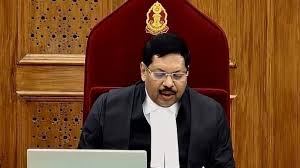[2] Brief facts of the case relevant to disposal of this petition are that non-applicant filed a private complaint before the trial court averring that non-applicant sold soya oil to applicant worth Rs.20,00,000/- on credit and when non applicant demanded said money from applicant he told non applicant that his Rs.19,38,187.77 were due on Jayanta Bhattacharya who will pay the amount due and applicant also executed an agreement relating to assignment of debt on 03.07.2008 wherein it was mentioned that the debt of Rs.9,10,930/- due towards non-applicant shall stand transferred to Jayanta Bhattacharya, who was in debt towards applicant for amount of Rs.19,38,187.77 and Jayanta Bhattacharya shall be liable to pay the debt directly to non-applicant and the 50% of excess amount of outstanding dues i.e. Rs.9,10,930/- shall be repaid by non- applicant to the authorized representative of applicant. In compliance of that agreement Jayanta Bhattacharya issued cheque in favour of the non-applicant for the amount of Rs.19,38,000/- bearing cheque No.937521 dated 16.07.2008, however, the said cheque was dishonored and Jayanta Bhattacharya refused to give money to the non-applicant on the ground that a money receipt dated 20.05.2009 was given by the applicant to Jayanta Bhattacharya to the effect that the applicant has received amount of Rs.20,00,00/- from Jayanta Bhattacharya and the same is transferred to J.K. Chemicals, Indore on behalf of Chaitanya Agro Products with full and final settlement. Thus applicant and Jayanta Bhattacharya committed cheating with non-applicant so cognizance be taken against applicant and Jayanta Bhattacharya. Learned trial court by order dated 09.07.2012 took cognizance only against applicant for the offence under Section 420 of the IPC. Being aggrieved with that order applicant filed this petition.
[3] Learned counsel for the applicant submitted that the debt of non-applicant due on applicant was legally transferred as per Section 130, 132 of Transfer of Property Act, 1882 by execution of agreement/MOU in consonance, concurrence and knowledge of the non-applicant and the said document is completely valid as per law and not even questioned by the non-applicant and, therefore, after execution of such agreement and as per law applicant cannot be held liable to pay such debt to the non-applicant and the non-applicant has to avail all remedies under law only against assignee of the debt and not against the applicant. Non-applicant also filed complaint against Jayanta Bhattacharya for dishonoring of the cheque. It is not the case of the complainant that the representations made by applicant in the agreement i.e. Jayanta Bhattacharya owes debt to applicant worth Rs.19,38,187.77 is false and, therefore, the applicant cannot be said to have committed the offence of cheating as the agreement was good in law without any misrepresentations. The non-applicant has not alleged in the complaint that the applicant had the dishonest intention of cheating right from inception whereas the basis of complaint is the averment made in Para 9 of complaint which contains the narration that Jayanta Bhattacharya has alleged that the applicant has committed offence of cheating but this cannot be made basis of implication of applicant without any actual overt act. The applicant is innocent and has been falsely implicated in the case. There is no legal evidence to connect the applicant with the aforementioned crime. The trial court without any application of mind wrongly took cognizance against the applicant.
[4] This court has gone through the record and arguments put forth by the applicant. At this stage only averment of the complaint and statement of non applicant given in court in support should be seen. According to Section 415 of IPC, the offence of cheating is made out where a person by deceiving any person, fraudulently or dishonestly induces the person so deceived to do or omit to do anything which he would not do or omit if he were not so deceived, and which act or omission causes or is likely to cause damage or harm to that person in body, mind, reputation or property, is said to "cheat".
[5] From the complaint and the statement of complainant it appears that non-applicant sold soya oil worth Rs.20,00,000/- to applicant on credit and when on 3/07/08 non-applicant demanded said money from applicant he told non applicant that Rs.19,38,187.77 of applicant was due on Jayanta Bhattacharya who would pay the non applicant''s dues and applicant also executed an agreement relating to assignment of debt on 03.07.2008 in which it was mentioned that the debt of Rs.9,10,930/- due towards non-applicant shall stand transferred to Jayanta Bhattacharya, who was in debt towards applicant for amount of Rs.19,38,187.77 and Jayanta Bhattacharya shall be liable to pay the debt directly to non-applicant while applicant latter settled his account with Jayanta Bhattacharya and on that ground Jayanta Bhattacharya refused to give money to the non-applicant which prima facie shows that earlier applicant lied to non applicant that Jayant Bhattacharya would pay his debt due to which applicant did not take any legal action for recovering said amount against applicant. Thus applicant deceiving complainant and fraudulently induced the non applicant for not recovering his debt from him. So, learned trial court did not commit any mistake in taking cognizance against the applicant for the offence under Section 420 of IPC. Applicant is free to raise all objections before the competent court at the appropriate stage.
Hence petition is dismissed.

